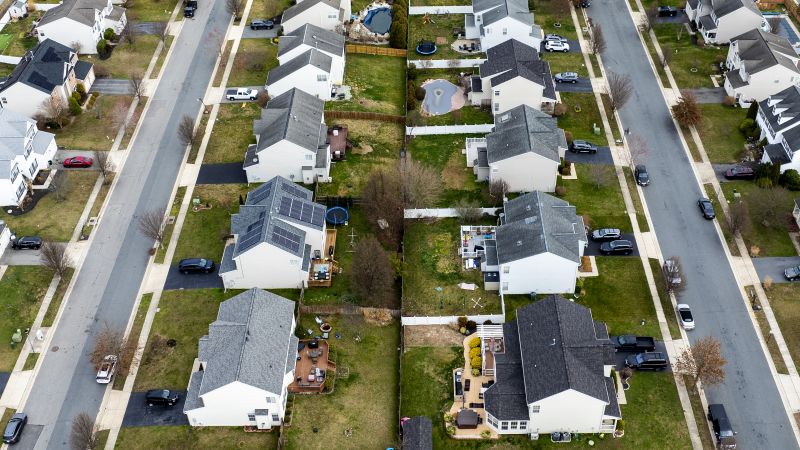
Will you finally be able to buy a home in 2025?
CNN
This year, America’s once-in-a-generation housing slump deepened — but 2025 may not see much improvement. That may be unwelcome news for those who have been priced out of homeownership over the past few years.
This year, America’s once-in-a-generation housing slump deepened — but 2025 may not see much improvement. That may be unwelcome news for those who have been priced out of homeownership over the past few years. “We’re coming into 2025 with a strong sense of déjà vu,” said Skylar Olsen, Zillow’s chief economist. “I think the difficulties of next year are going to be pretty similar to the difficulties of last year.” In 2024, Americans who bought homes were older and richer than ever. That’s because buying a home has grown more difficult amid a lack of affordable options. The median existing-home sales price was $406,100 in November, the 17th consecutive month of year-over-year price increases, according to the National Association of Realtors. In November 2019, before the Covid-19 pandemic, the median sales price was $274,000, according to NAR. The significant jump in home prices made homeowners richer on paper. Meanwhile, rents have also risen, making it increasingly difficult for renters to save money for a down payment. Nearly half of all renters paid more than 30% of their income toward housing costs, according to the US Census Bureau. Homelessness also hit a record high in 2024, driven in part by a lack of affordable housing, according to the Department of Housing and Urban Development. Homeowners have faced financial pressures of their own this year. Those who live in areas vulnerable to natural disasters have seen their home insurance premiums skyrocket, and inflation has caused the cost of home repairs to rise. Borrowing costs play a major role in housing affordability, as well. A few months ago, economists had predicted that mortgage rates would fall below 6% by the end of the year. But this month, the Federal Reserve signaled that it may only cut interest rates twice next year, fewer than expected. That has caused mortgage rates, which track the 10-year US Treasury yield, to climb higher: The average 30-year fixed mortgage rate was 6.85% last week, up from 6.61% this time last year, according to data from Freddie Mac.













